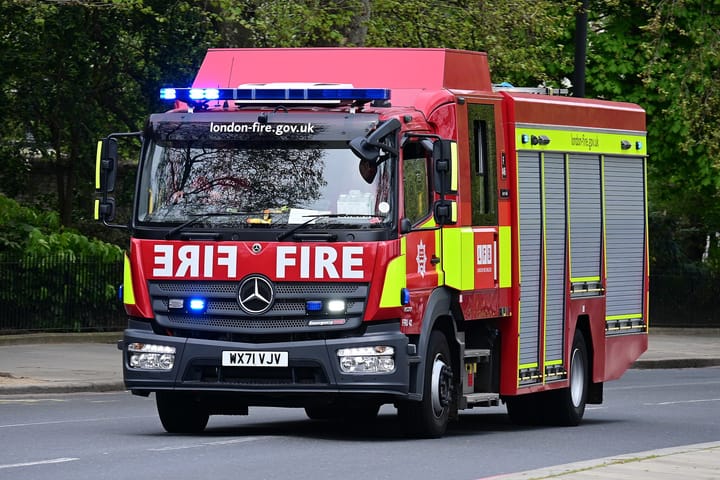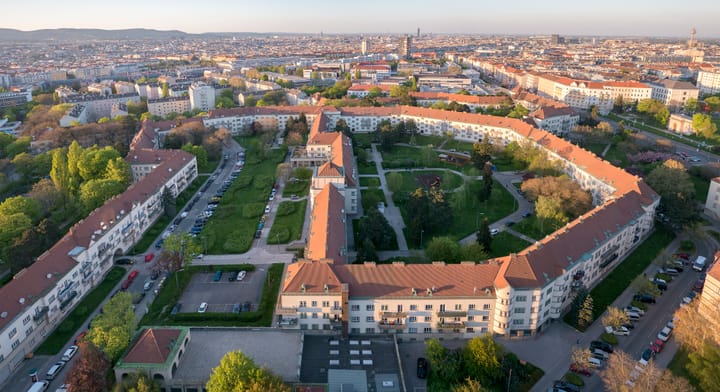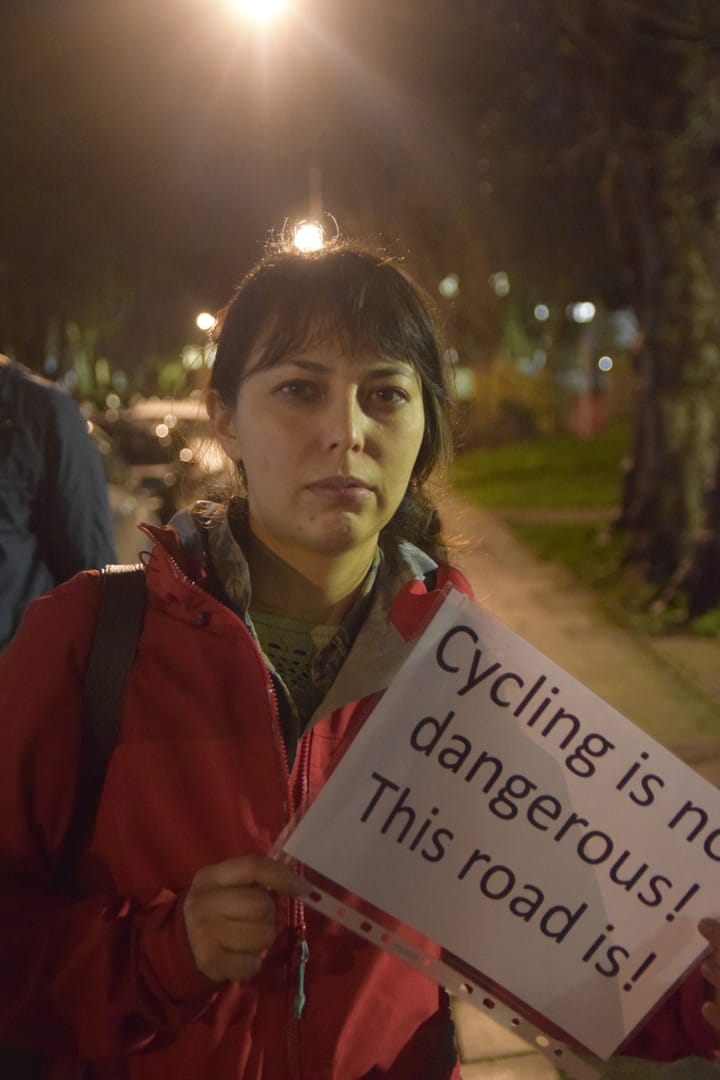Climate Scorecard 2025 - Lewisham gets top marks on Planning & Land Use but penalties for clean air and nature
The council improved on its 2023 Climate Score by 10%, achieving its highest scores on Planning & Land Use and Collaboration & Engagement. It saw improvements across every category except Biodiversity, losing points on Clean Air and Nature.

The aim of Climate Scorecards is to assess how well each council is doing on climate action across different areas, provide visibility to residents and campaigners, and offer a way for councils to share best practice.
Lewisham council tied 9th (with Bristol) in the UK single tier league table, with an average score of 65%.
The council saw big improvements to its scores on Buildings & Heating, Waste Reduction & Food, and Governance & Finance.
But its score dropped 11 points in Biodiversity, where its performance on conservation management across its sites has deteriorated. It is also failing to provide a target to increase tree cover and a tree management plan.
In Transport, Lewisham received penalty points due to exceeding safe World Health Organisation (WHO) air pollution guidelines for harmful pollutants NO2 and PM2.5:

Lewisham has a target to be carbon neutral by 2030 and relaunched its Climate Emergency Action plan in 2024.
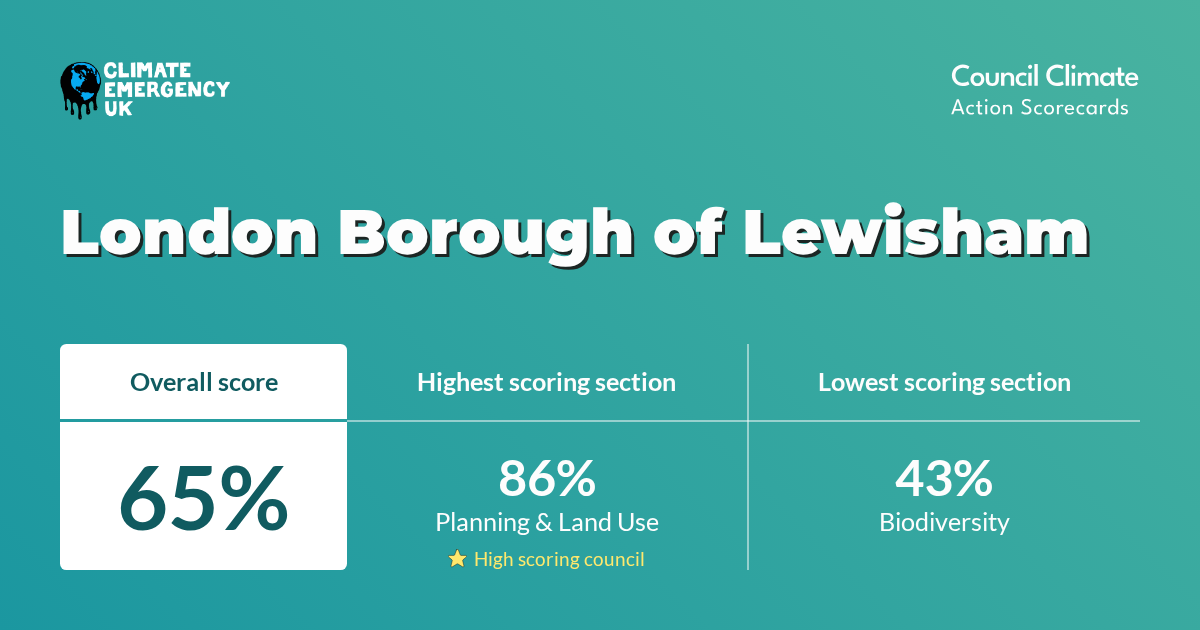
Tyndall Centre advice
The scorecards are an important tool in improving the performance of individual councils. But they tell us little about the council's actual emissions.
The Tyndall centre in Manchester has apportioned the UK's overall commitment to the Paris Agreement to show the fair contribution of each local authority.
The pathway for Lewisham requires cuts in emissions of 12.7% per year to deliver "Paris aligned" emissions reductions.
But without the actual figures - estimated emissions - every year, it is impossible to tell how Lewisham is doing.
There is a further question of how council emissions relate to the UK's overall emissions, including the impacts of the high carbon, national infrastructure projects across London that are taking us further away from net zero.
An example is the expansion of London City Airport, which was approved by the government, despite opposition from the London mayor and local councils.
Although councils bear the impacts of increased noise and air pollution, the increase in aviation emissions will not be captured by any council.
Need for government funding
Climate Emergency UK spokesperson Anne Pickering said that councils across the UK are "struggling to step up their climate action at the emergency pace needed" due to lack of government funding.
"These Scorecards provide proof of where councils need real investment from the national government so that every council can improve their score by 20 percentage points or more each time to make real progress towards cleaner, safer and more prosperous zero emission communities we need to thrive,” she said.
The GLA is the only authority which has a legal duty to tackle climate change embedded in it, and has achieved the best scores of all the combined authorities.
Pickering points out that most of the UK's population want climate action, and this cuts across political parties. "The most recent poll in the UK showed that 72% of people, up 8 percentage points since 2022, are concerned about the impacts of climate change."
The scorecards are a project of Climate Emergency UK and mySociety.
Find Lewisham's results here:
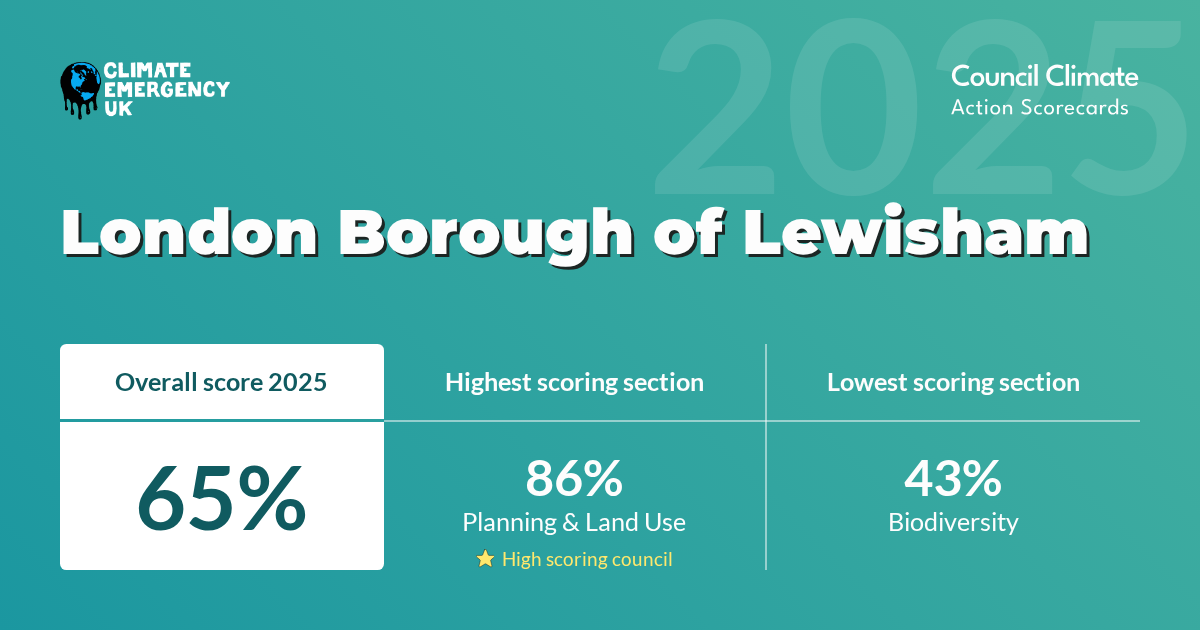
Sign-up for our free weekly newsletter - Salamander News in your inbox


